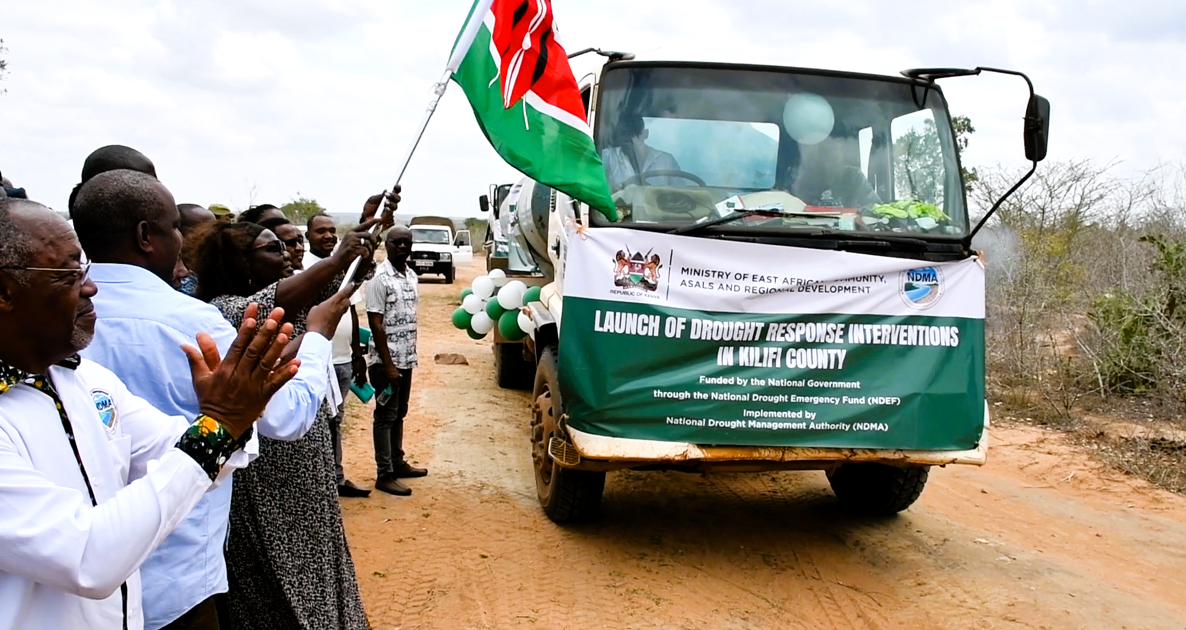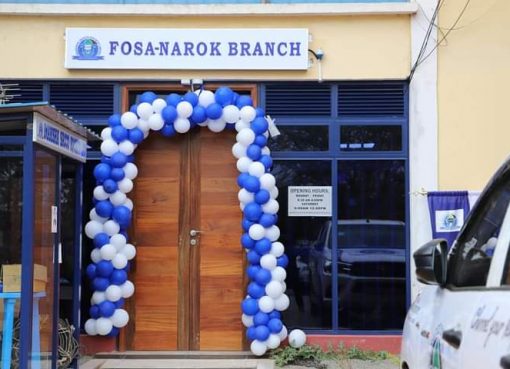The government has stepped in to provide urgent relief to Kilifi County residents as the ongoing drought worsens, leaving thousands grappling with severe food and water shortages.
The prolonged dry spell has crippled agricultural activities, particularly in the hardest-hit areas like Ganze, where families are struggling with the devastating effects of the drought.
Led by Cabinet Secretary for Arid and Semi-Arid Land (ASAL) Beatrice Moe, the government launched Drought Response Interventions initiative at Mryachakwe village, where 40,000 litres of water, 300 bags of rice and 270 bags of beans were distributed to hundreds of affected residents in the area.
Speaking at the launch, CS Moe, accompanied by ASAL Principal Secretary, Kello Harsama, assured residents that the government would provide monthly food relief and deliver 40,000 liters of water weekly until the condition improves.
“We are here to ensure that, during this difficult period, we can provide immediate relief through food distribution as we hope for a better season,” said Moe.
According to the National Drought Management Authority (NDMA), the severe drought has directly affected 80,000 residents across Kilifi County, Ganze sub-county being the most impacted.
In a significant move, Moe announced that Kilifi County will now be included in the Hunger Safety Net Programme (HSNP), enabling drought-stricken families to benefit from the relief programs provided by the initiative.
“This county was not part of the counties within the Hunger Safety Net Programme, so we are also looking at those badly affected families that would be put as members and would benefit from that provision of the program”, she said.
On long-term measures, the government revealed plans to construct water pans and dams in Kilifi to harvest rainwater, providing a sustainable solution for drought mitigation in the future.

CS Moe also appealed to non-governmental organizations (NGOs) and other partners to step in and assist, highlighting the need for a coordinated effort to combat the worsening drought.
The drought has not only resulted in widespread hunger but has also posed a severe threat to livestock, which many residents depend on for their livelihoods.
Harsama, reassured the public that the government is committed to sustaining the interventions to ensure no lives are lost to the drought.
“I want to guarantee the residents here that food rations will be supplied every month as part of an ASAL support program”, he said.
“We will also station these two water trucks here to support the local people with the water on a weekly basis. Each homestead will be guaranteed of water supply to cushion them from the severity of water shortages occasioned by the deteriorating effect of drought in this area”, he added.
The government’s intervention brings a glimmer of hope to the affected residents in Kilifi, although the widespread drought requires the collective efforts of various stakeholders.
The ongoing drought reflects the broader climate crisis affecting many parts of Kenya, underscoring the urgency of building resilience among communities that are most vulnerable to extreme weather conditions.
By Jackson Msanzu





